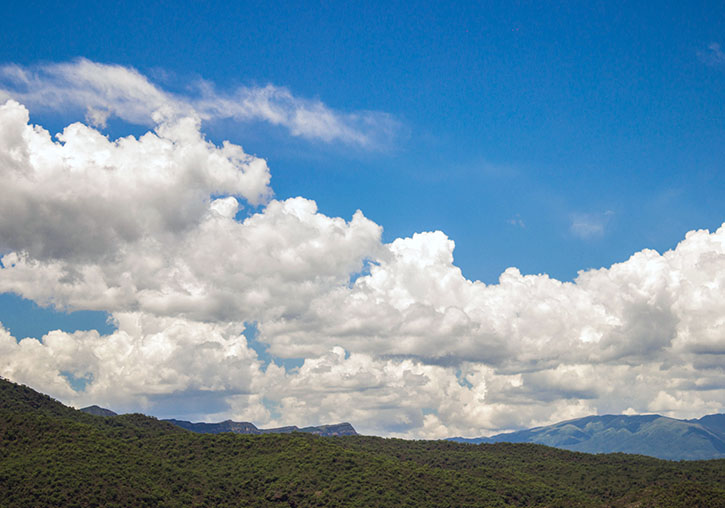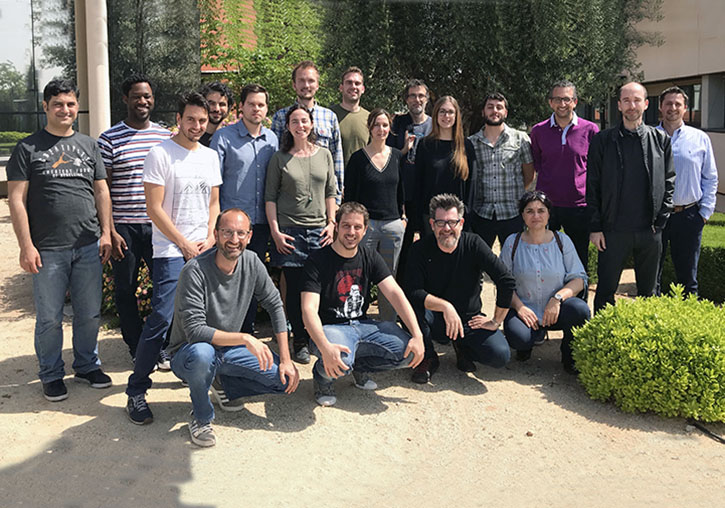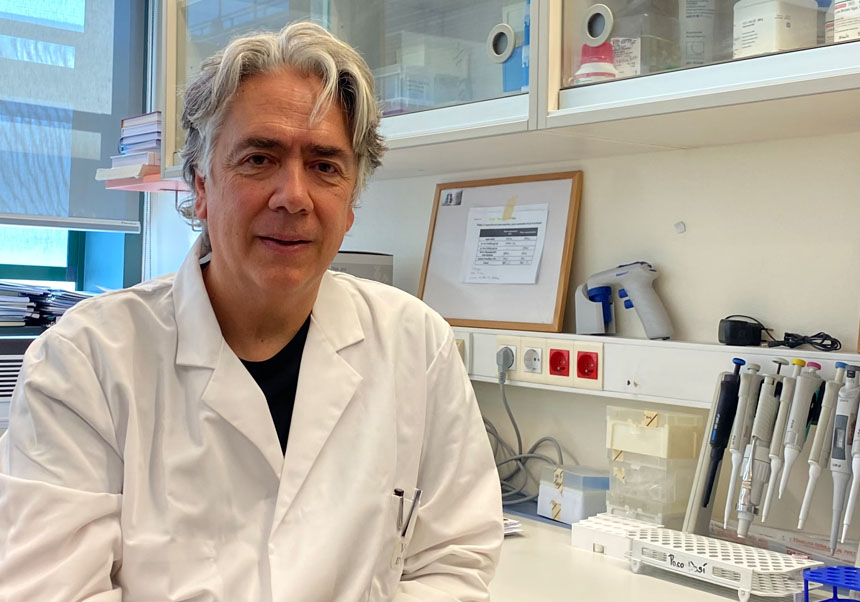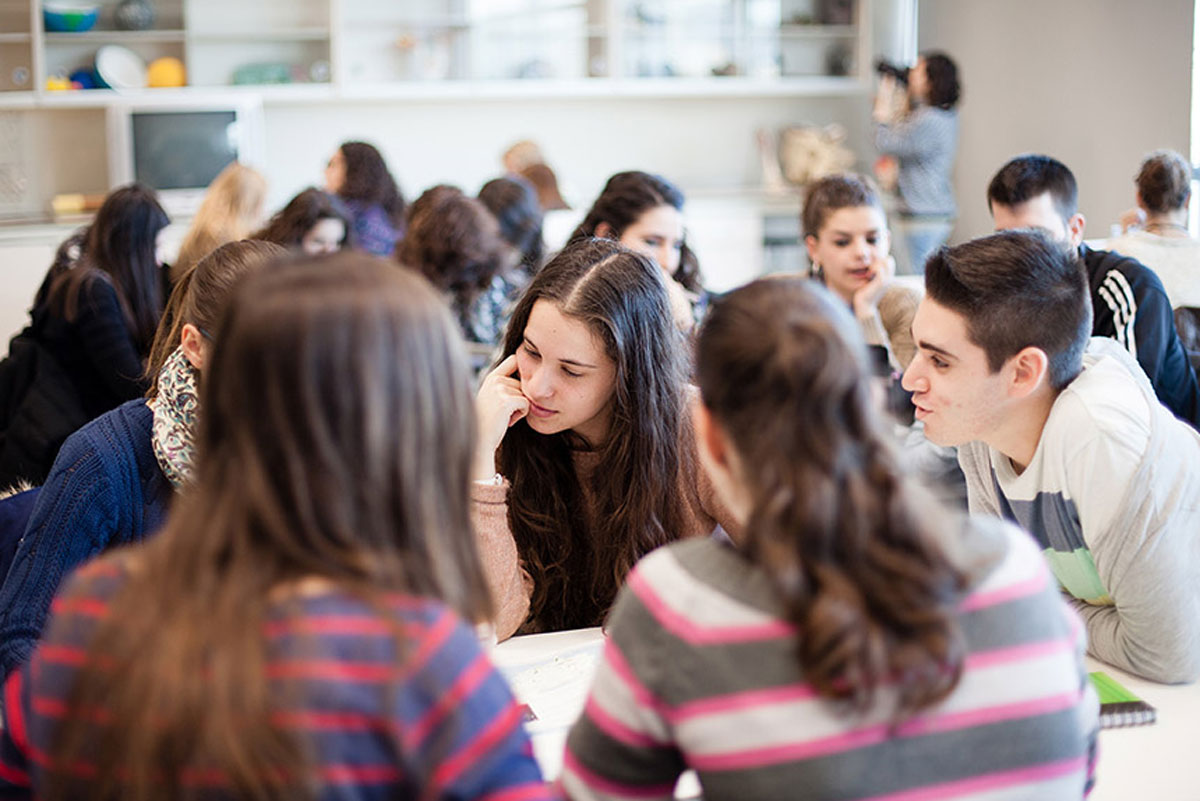The Universitat in the Marie Curie’s network that will analyse with Machine Learning the role of aerosols and clouds in the global warming
- Science Park
- December 3rd, 2019

Universitat de València is one of the nine European institutions that will take part in the new network iMIRACLI, a Marie Curie action funded by the European Commission, aimed at doctorate training and for promoting a new generation of scientists in data about Climate. The network grouped the leaded researchers in climate studies and Machine Learning and the non-academic members as Amazon and MetOffice.
Climate Change is one of the most serious problems facing our planet. Despite the implementation of the Paris Agreement about the Climate is based on scientific strong evidences, the understanding of climate change remains an issue of high uncertainty. This must be, in this sense, the uncertain role that play the clouds in the climate system and its interaction with aerosols.
Around 70% of the earth’s surface is covered by clouds at a specific point in time. Although these often produce a refrigeration effect to Earth, scientists don’t know if clouds contribute to accelerate warming or performance as compensating elements as the climate change advances.
The innovative techniques of Artificial Intelligence and Big Data, such as Machine Learning (automatic or statistic learning), are starting to show their potential for resolving issues about Climate Sciences. In this line, the European Commission has just announced the funding of a new innovative network, in the context of the actions of Marie Curie’s training, for studying and restricting the effects of this clouds-aerosols interaction with the help of Machine Learning.
Leaded by Oxford’s University, iMIRACLI (innovative MachIne leaRning tono constrain Aerosol-cloud CLimate Impacts) groups European leaders scientists in climate field and Machine Learning as non-academic members, as Amazon and MetOffice, to work in the training of a new generation of scientists in climate’s data.
The project will start in 2020 and will funded 15 doctorate students in Europe, three of them will be codirected by Image Processing Laboratory (IPL) from Universitat de València, at the Parc Científic, where they will be trained in Machine Learning by the Image and Signal Processing group (ISP) headed by the Professor of Electronic Engineering Gustau Camps-Valls. “The aim is training the next expert generation in climate science data; I mean, people with great knowledge and abilities in observation of Earth, climate and Machine Learning at the same time”, said Camps. “Our group will work with the doctorate students in the field of statistic learning to detect anomalies, emulating physical complex models or designing methods of Machine Learning that consider the physical laws and infer the causal relationships of data”.
Students will start their projects at the end of 2020, starting with a summer school in Oxford. Philip Stier, Professor of Atmosphere Physics at Oxford’s University, is the consortium’s Main Researcher: “The automatic learning has the potential to unblock an unique and deep understanding of the climate system from very large data climate sets, but this requires a new generation of experts with substantial knowledge of climate as well as data information”, he said. Each student will be supervised by an expert in climate sciences, another in Machine Learning and will count on an industrial advisory.
Leipzig University, Stockolms Universitet, ETH Zürich, University of Edimburgh, Universitat de València, University College London, Deutsches Zentrum für Luft- und Raumfahrt e.V. (DLR-German Aerospace Center), Ecole Polytechnique Federale de Lausanne and Friedrich-Shiller Universität Jena, with other non-academic members Amazon, The Alan Turing Institute, MetOffice, Iris.ai, GAF AG and FastOpt take part in the network.
Details of the opportunities will be widely announced at webs of every institution, as well as iMIRACLI Twitter (@iMIRACLI_ITN) and ISP Twitter (@isp_uv_se).

More information:
















